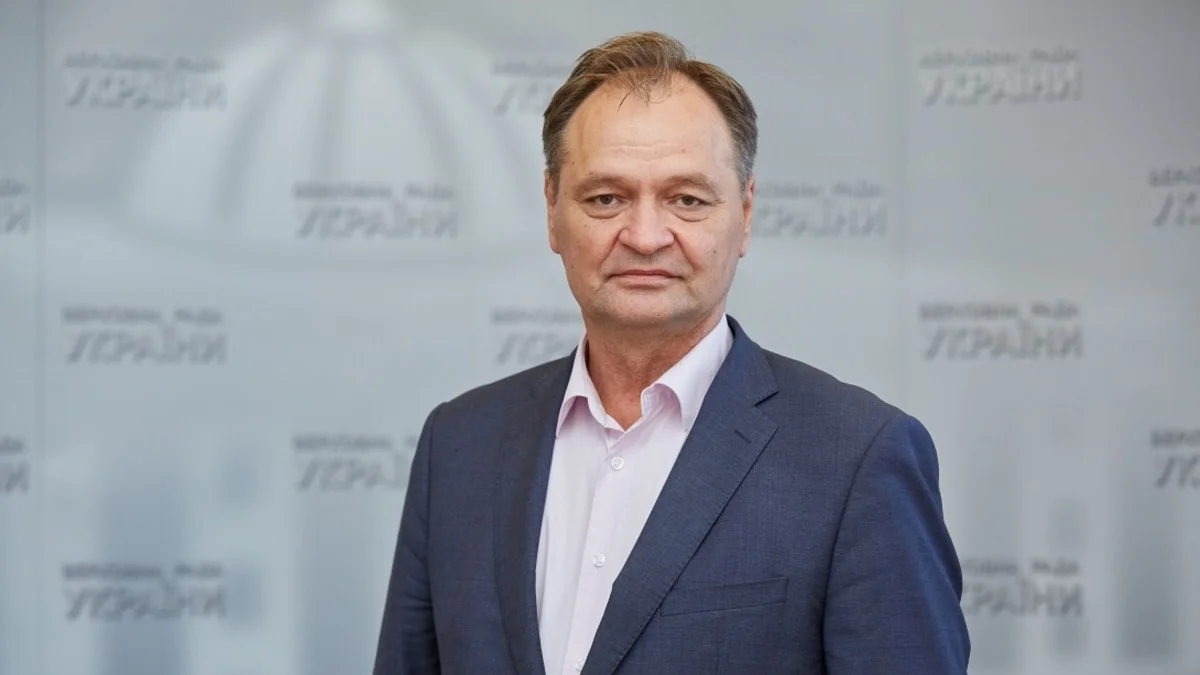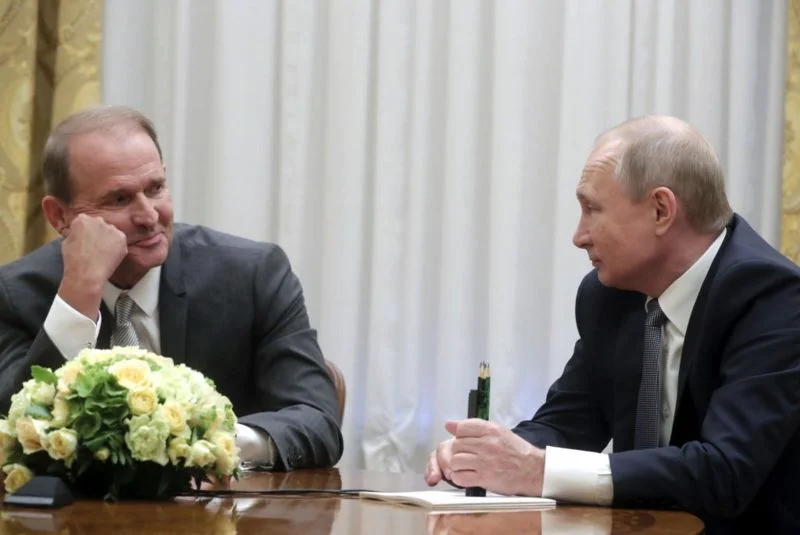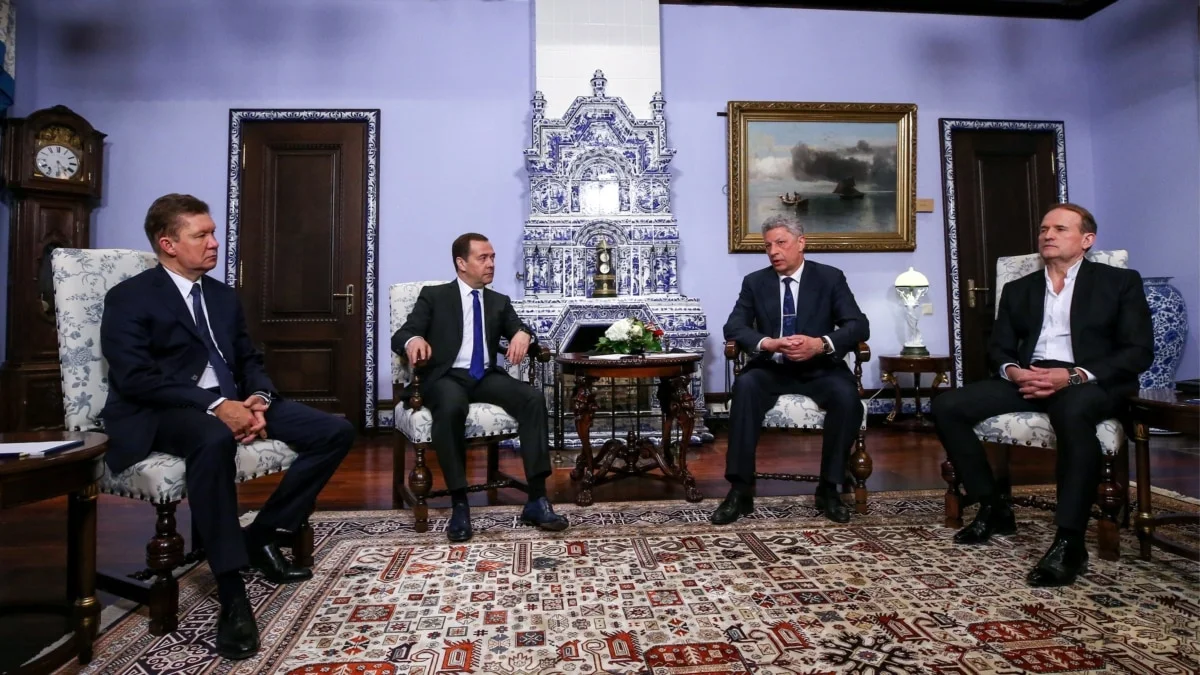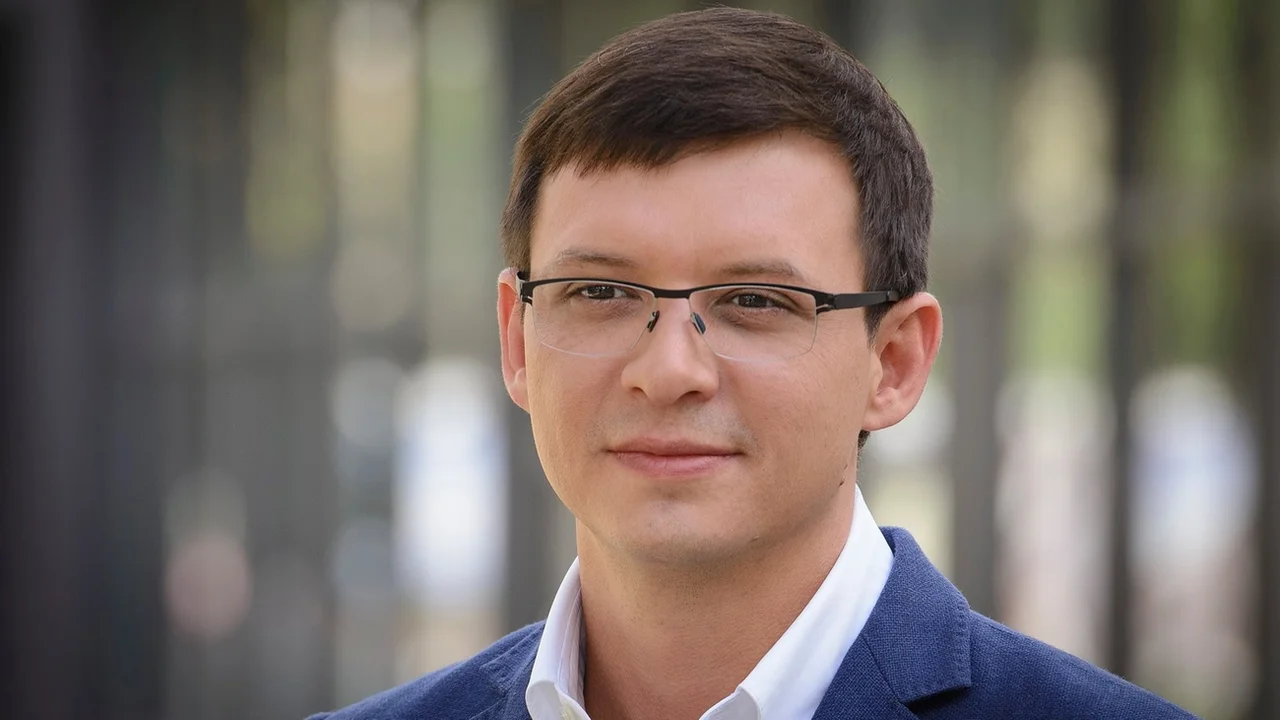On Jan. 19 of this year, a man returned to Ukraine, his whereabouts unknown for nearly a year. According to some sources, he was being held in Russian captivity in occupied Berdyansk. He says he went to the city before Moscow’s forces took over in an attempt to rescue his relatives, but was captured.
In November, he was released. But instead of immediately returning to Ukraine he took a circuitous route, visiting Russian-occupied Crimea, then Russia, then Georgia. Only then did he return home.
- Read the most contemporary war in ukraine update in the Kyiv Post’s daily news pieces for today.
JOIN US ON TELEGRAM
Follow our coverage of the war on the @Kyivpost_official.
Just days after arriving back in Kyiv, having visited a number of Russian territories with no explanation, he resumed his day job – as a lawmaker in Ukraine’s parliament.
His name is Oleksandr Ponomaryov, a people’s deputy formerly a member of the pro-Russian party Opposition Platform – For Life’ (OPZZh), which was banned in the wake of Russia’s full-scale invasion of Ukraine.

Oleksandr Ponomaryov. Photo by OPZZh
He has since joined another faction, Platform for Life and Peace, one of two new groupings created by former members of the pro-Russian OPZZh.
In July 2023 he was suspected of treason, accused of cooperating with the Russians and improving the operation of his enterprises in the interests of the Kremlin – the supply of fuel and lubricants for the military equipment of the Russian Federation.

Norway Doubles Ukraine Aid to €7B
Despite currently being in prison, until proven guilty in court, he remains a people’s deputy in Ukraine’s parliament.
And with the country currently under martial law, during which changes to the Constitution cannot be made, he could in theory hold his position until new elections are held – but these are also on hold until the end of martial law.
Ponomaryov’s situation is not unique – in the last parliamentary elections held in Ukraine in 2019, OPZZh won 44 seats – 44 members of a now-banned pro-Russian party who retained their seats of power, participating in shaping the future of Ukraine.
The founding of OPZZh and relations with Russia
OPZZh was created in November 2018 from the remnants of other pro-Russian parties, including one which helped the notorious Viktor Yanukovych become president, before he fled Ukraine to Russia during the Maidan Revolution in 2014.
Among OPZZh’s founders was Viktor Medvedchuk, an oligarch and powerbroker once dubbed the “dark prince” of Ukrainian politics, due primarily to the fact that he was a close personal friend of Russian President Vladimir Putin.
 Viktor Medvedchuk, Vladimir Putin. Photo by TASS.
Viktor Medvedchuk, Vladimir Putin. Photo by TASS.
In 2021, Medvedchuk was accused of high treason, attempting to steal natural resources from Crimea while it was under Russian occupation, and of handing Ukrainian military secrets to Moscow. He was captured in April 2022 by Ukraine’s special services, after fleeing home arrest when Russia invaded.
In September 2022, Medvedchuk was one of more than 50 prisoners handed over to Russia in exchange for 215 imprisoned Ukrainian soldiers. He currently resides in Russia and was stripped of his Ukrainian citizenship in January of this year.
One of OPZZh’s other founders was Yuriy Boyko, a close acquaintance of Yanukovych, also remains a people’s deputy today.
Boyko and Medvedchuk led the party at the 2019 election and received 13 percent of Ukrainian votes in the parliamentary elections and won 44 deputy mandates. Boyko also took part in the presidential elections of the same year, taking fourth place.
This public support persisted despite the fact that shortly before the elections, they made a highly-controversial trip to Russia where they met the former Prime Minister of the Russian Federation Dmitry Medvedev – who now vocally supports the total destruction of Ukraine – and the head of Gazprom Oleksiy Miller.
The OPZZh ideology
The ideology of the OPZZh and its members’ trips to Russia, was based on a desired revival of relations between Kyiv and Moscow, territorial concessions to the Kremlin in the occupied territories, criticism of Ukrainian patriots, and aggressive promotion of the Russian language.
The party also claimed Ukraine’s accession to NATO and the European Union would only ruin life, and one major downside – in their view – was likelihood of angering Russia. The OPZZh targeted the voters of the eastern, southern and central regions with these messages.
To propagate the party’s pro-Russian messaging, Medvedchuk – together with his partner and party colleague Taras Kozak – bought three Ukrainian TV channels - Newsone, Zik, and channel 112. In February 2021, however, their activities were also banned.
 Oleksiy Miller, Dmitry Medvedev, Yuriy Boyko, Viktor Medvedchuk. Photo by TASS.
Oleksiy Miller, Dmitry Medvedev, Yuriy Boyko, Viktor Medvedchuk. Photo by TASS.
At the same time, they were helped by another lawmaker, Yevhen Murayev, who financed the Nash TV channel, to push the pro-Russian agenda. According to British authorities, the Kremlin seemed to consider him the best candidate to lead the government of Ukraine under Russian occupation.
Looking back to the years when OPZZh operated, Boyko told Kyiv Post: “Our political force insisted on two key points: the settlement of the situation in the Donbas through the implementation of the Minsk agreements and, after that, the further settlement of relations with Russia on a wide range of issues.
“As for the position of individual members of our party, the full-scale invasion has quite clearly shown people’s true colors.”
From traitors to patriots
Russia’s full-scale invasion changed everything in Ukraine, especially for those deemed to have pro-Moscow views, who instantly came under intense suspicion.
In the Ukrainian parliament, Kyiv Post sources suggest that at least some of the members of OPZZh knew about Putin’s plan to invade, saying that the day before, another deputy from the party, Nestor Shufrych, announced that Putin had recognized the illegitimate Donetsk and Luhansk People’s Republics.
“Then he said quite clearly that there would be some kind of escalation, but the only thing Shufrych never said was about the invasion of the Kyiv region,” a source told Kyiv Post.
“He clearly said that the Russians will take the entire Luhansk region and go to Mariupol. How he knew this, I don’t know.”
Boyko insists he knew nothing about the Kremlin’s plans. He told Kyiv Post: “I was sure that there would be no war. On Feb. 24, I woke up at night, like all Ukrainians, to the roar of cannonade.
“And before that, I completely agreed with President Zelensky’s position that there would be no war.”
Since Feb. 24 of last year, the public rhetoric of former OPZZh lawmakers has completely changed – they blame Medvedchuk for everything and insist it is necessary to fight and help at the front.
Some even offered to use their Russian contacts, or to exchange him for Ukrainian soldiers on their own initiative. In a conversation with Kyiv Post representatives of the authorities said that they had decided to decline the OPZZh lawmakers’ offers.
 Yevhen Murayev. Photo by press service
Yevhen Murayev. Photo by press service
‘Time will judge’
Instead, the party was banned and six party members – including Medvedchuk – lost their mandates due to accusations of treason. Others chose to live abroad.
But many former members remain people’s deputies. They created two parliamentary groups – “Platform for Life and Peace” and “Recovery of Ukraine.”
The first included politicians who have many years of experience as deputies, led by Boyko.
As mentioned earlier, Ponomaryov remains a member of Platform for Life and Peace, despite being suspected of collaborating with Russia.
Shufrych is still in parliament and even heads the committee on freedom of speech.
Yet removing them from their positions is a tricky business – currently, a deputy loses his seat in parliament if he resigns himself, if he dies, if there is a court verdict, if he loses his citizenship, or if he is declared incapacitated or missing.
Under the Ukrainian Constitution, there are no legal grounds for removing a people’s deputy just because their party is banned. And while martial law is in place, changes to the Constitution cannot be made.
Public polling suggests that if new elections were held, they would lose in a landslide – Boyko, for example, has 77 percent distrust among Ukrainians.
But this route is currently closed, as elections are also not allowed during martial law.
There is some action being taken – Kyiv Post sources in the ruling Servant of the People faction indicate that in the near future Shufrych will be removed from his committee place and a plan to do this is already in the works.
But at a political level, a certain level of equilibrium in the context of the war appears to have been achieved, with sources telling Kyiv Post that despite their pasts, they are now very effective in parliament.
“They vote for all important initiatives – the Istanbul Convention, etc.,” a source told Kyiv Post.
“They are now for the President. It seems to me that they have a historical role to work off their sins.”
You can also highlight the text and press Ctrl + Enter











